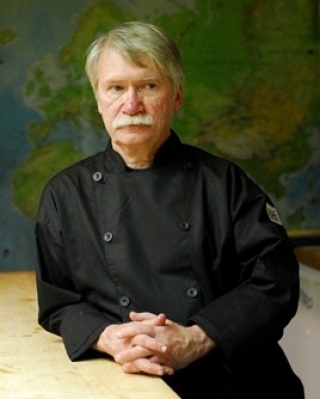
Ordinary People
02 January 2024When ordinary is acceptable how to push and pull through to exceptional.
By Paul Sorgule, MS, AAC
Feedback & comments: This email address is being protected from spambots. You need JavaScript enabled to view it.
A few weeks back in a conversation with a friend, reference was made to “ordinary people,” in this particular case – ordinary cooks, chefs and restauranteurs. This led me to wonder; does anyone really want to be ordinary? Is this a goal for some or is it simply acceptance - settling for ordinary? When you look into the eyes of an infant, kindergartener, high school graduate, or freshman entering your classroom for the first time – do you see ordinary as an outcome? Did their parents hold them for the first time and think, “Here is my ordinary son or daughter?” I believe the answer is no.
At what point and for what reason do some people accept ordinary? When do they push aside their dreams of extraordinary and simply settle? I wonder if ordinary is either an easy way out of the effort required or a byproduct of a system that seeks to play it safe and avoid risk?
Are there individuals who go through the effort of planning, financing, building and creating a restaurant with ordinary in mind? When asked about their goals, do you find students who say, “I want to be an ordinary cook or chef and operate a very ordinary restaurant?” I would guess this is not the case. If seriously studied, I would guess most want to be exceptional, to set the culinary world on fire, and to create the next French Laundry or Chez Panisse. If interviewed, I would bet most of your students would love to wear a James Beard Chef of the Year medal around their neck and operate a restaurant filled with enthusiastic guests every night. I would guess they want to be anything but ordinary.
How do we start the exceptional process on day one? What environment are we establishing for our students, and for that matter our faculty members? Do we paint a picture of excellence and push and pull all involved to reach their potential? Our task is not to allow stakeholders to accept their fate in mediocrity, but rather to create their destiny in excellence. If we allow ordinary to slip in, it will gladly do so. Ordinary is funny that way – it finds the weakest point in a system, seeps through initially, and eventually fills the space.
If a parent allows it to happen without challenge, it will happen to their children. If a faculty member allows it to happen without challenge, it will to their students. If an employer finds ordinary to be acceptable, then ordinary it shall be with their employees.
People do have limits and some are more gifted than others in particular areas and with certain skills, but those who excel rarely do so by being complacent. Even the most gifted work at it. They don’t accept limitations imposed by others, nor do they cave in when faced with bumps in the road or what some might call failure. Encouragement, coaching, high standards, real critique, and pushing expectations are all positive ways of keeping the focus on what most individuals (in my opinion) want for themselves and others. If we begin by assuming people want to excel but some are more inclined than others to work for it, then our objective should be to push and pull students a little harder. If, in fact, some of our students were allowed to accept ordinary along the way, then our work is cut out for us. But isn’t this why we chose to teach?
Take a look around you and ask, “Do any of my students feel as though ordinary is all they expect? How is my program, curriculum and teaching environment viewed? Is it ordinary or extraordinary? What can I do, right now to change the course of that thinking?”
As we start a new year, let’s look at all our stakeholders with a clear vision and an understanding that potential and achievement are oftentimes separated by work, and just as often separated by outlook and approach. If the result of exceptional effort is ordinary, then so be it but let’s not accept that fate without supporting those dreams and that potential.
PLAN BETTER – TRAIN HARDER – LIVE UP TO POTENTIAL
Paul Sorgule, MS, AAC, president of Harvest America Ventures, a mobile restaurant incubator based in Saranac Lake, N.Y., is the former vice president of New England Culinary Institute and a former dean at Paul Smith’s College. Contact him at This email address is being protected from spambots. You need JavaScript enabled to view it..
